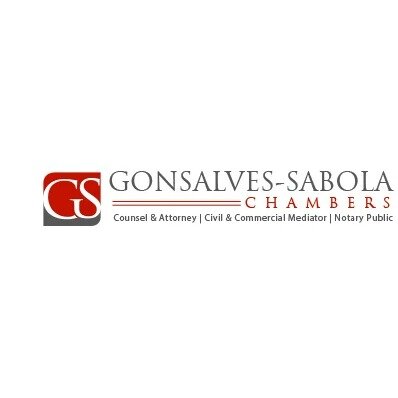Best Restructuring & Insolvency Lawyers in Nassau
Share your needs with us, get contacted by law firms.
Free. Takes 2 min.
List of the best lawyers in Nassau, Bahamas
About Restructuring & Insolvency Law in Nassau, Bahamas
Restructuring and insolvency law in Nassau, Bahamas provides a legal framework for addressing financial distress in businesses and individuals. Whether companies are facing cash flow challenges, declining assets, or are simply unable to pay existing debts, the law sets out structured processes to help restructure obligations, protect creditors’ interests, and, if necessary, wind up insolvent entities in an orderly manner. Due to its status as a prominent international financial services center, the Bahamas has developed modern legislation that balances the rights of debtors, creditors, and other stakeholders.
Why You May Need a Lawyer
Legal assistance in restructuring and insolvency is critical for several reasons. Individuals and enterprises often require expert guidance to navigate complex legal requirements and minimize financial and reputational harm. Common scenarios where you may need a lawyer include:
- Facing mounting debts and creditor actions
- Receiving statutory demands or court proceedings from creditors
- Needing to negotiate payment terms or restructure business operations
- Pursuing voluntary liquidation of a business
- Dealing with the appointment of receivers or liquidators
- Uncertain about your rights and responsibilities during insolvency
- Protecting company directors from personal liability claims
- Dealing with cross-border insolvency issues
- Preserving critical business assets
- Responding to fraudulent preferences or suspicious transactions claims
A qualified insolvency lawyer in Nassau can provide specialized advice, help prepare the required legal documentation, represent you in negotiations or court proceedings, and guide you towards the most suitable solution for your situation.
Local Laws Overview
Restructuring and insolvency in Nassau, Bahamas is governed by several key legal instruments, most notably the Companies (Winding Up Amendment) Act, the Bankruptcy Act and related statutes. These laws detail the procedures for voluntary and involuntary liquidations, receiverships, and reorganizations.
Some key aspects include:
- Winding Up Companies: The process may be initiated voluntarily by shareholders, by creditors or by court order. The law outlines clear procedures for asset realization and creditor compensation.
- Bankruptcy for Individuals: Includes filing for bankruptcy, creditor meetings, appointing trustees, and the distribution of assets according to statutory priorities.
- Receiverships: Secured creditors may appoint a receiver for the purpose of collecting debts or managing company affairs during financial distress.
- Director and Officer Duties: Specific duties and potential liabilities arise when a company is insolvent or nearing insolvency, particularly regarding asset transfers or preferential payments.
- International Considerations: Bahamian law is designed to be compatible with international insolvency standards and may involve cross-border cooperation for foreign creditors or assets.
- Protection of Creditors: The system aims to ensure fair treatment of creditors while allowing businesses the opportunity to recover through restructuring where feasible.
Engaging with experienced legal professionals helps ensure all statutory obligations are met and maximizes available protections under Bahamian law.
Frequently Asked Questions
What is the difference between restructuring and insolvency?
Restructuring refers to efforts to reorganize a company or individual's financial affairs to restore viability, such as negotiating with creditors or adjusting debt terms. Insolvency is when a company or individual cannot pay debts as they fall due, triggering formal procedures under the law.
How do I know if my company is insolvent?
Insolvency typically occurs when liabilities exceed assets or when you are unable to meet debts as they become due. Professional assessment is advised if you are uncertain about your company’s financial standing.
Can I voluntarily wind up my company in Nassau?
Yes, Bahamian law enables both voluntary winding up by shareholders and creditors, provided all statutory procedures are followed, including proper notifications and asset distributions.
What protections exist for creditors in insolvency proceedings?
Creditors are prioritized by statutory order and have rights to be notified, submit claims, and, in some cases, challenge asset transfers made shortly before insolvency. Secured creditors often have additional protections.
What happens to employees during company insolvency?
The law recognizes certain employee claims, such as unpaid wages and entitlements, as preferential debts. Employees are notified and may submit claims along with other creditors.
Is personal bankruptcy available in Nassau, Bahamas?
Yes, individuals unable to pay their debts can file for bankruptcy under the Bankruptcy Act, which involves asset realization and debt discharge after prescribed procedures.
Are company directors personally liable for company debts?
Directors are generally protected from personal liability, but they can be held liable in cases of wrongful or fraudulent trading, or if statutory duties relating to solvency are breached.
Can debts be negotiated without entering formal insolvency?
Yes, informal workouts and negotiations with creditors are possible. Legal advice is crucial to manage negotiations and draft binding agreements.
What is the role of a liquidator or receiver?
A liquidator manages the winding up of a company, sells assets, settles claims, and distributes proceeds. A receiver, often appointed by secured creditors, manages or sells certain assets for debt recovery.
How long does the insolvency process take in Nassau?
Timeframes vary depending on the complexity and type of proceedings. Some liquidations conclude within a year, while complex cases or contested insolvencies may take longer.
Additional Resources
If you are seeking further information or support regarding restructuring and insolvency in Nassau, the following resources may be helpful:
- Supreme Court of the Bahamas - handles formal insolvency and bankruptcy applications.
- Registrar General’s Department - company searches and document filings.
- The Bahamas Financial Services Board - provides industry insights and professional listings.
- Bahamas Bar Association - for finding qualified insolvency attorneys.
- Licensed liquidators and insolvency practitioners in Nassau.
Consulting these organizations or visiting their offices can provide additional guidance specific to your needs.
Next Steps
If you believe restructuring or insolvency law may apply to your situation, consider the following actions:
- Gather all relevant financial documents, including statements, contracts, and communications with creditors.
- Assess your immediate financial position and identify urgent creditor demands.
- Schedule a consultation with a qualified restructuring and insolvency lawyer in Nassau, Bahamas.
- Prepare a list of questions and objectives for your legal advisor.
- Follow your lawyer’s guidance regarding negotiations, court proceedings, and documentation.
Every situation is unique, so prompt and informed legal advice is the best way to protect your rights and interests under Bahamian restructuring and insolvency law.
Lawzana helps you find the best lawyers and law firms in Nassau through a curated and pre-screened list of qualified legal professionals. Our platform offers rankings and detailed profiles of attorneys and law firms, allowing you to compare based on practice areas, including Restructuring & Insolvency, experience, and client feedback.
Each profile includes a description of the firm's areas of practice, client reviews, team members and partners, year of establishment, spoken languages, office locations, contact information, social media presence, and any published articles or resources. Most firms on our platform speak English and are experienced in both local and international legal matters.
Get a quote from top-rated law firms in Nassau, Bahamas — quickly, securely, and without unnecessary hassle.
Disclaimer:
The information provided on this page is for general informational purposes only and does not constitute legal advice. While we strive to ensure the accuracy and relevance of the content, legal information may change over time, and interpretations of the law can vary. You should always consult with a qualified legal professional for advice specific to your situation.
We disclaim all liability for actions taken or not taken based on the content of this page. If you believe any information is incorrect or outdated, please contact us, and we will review and update it where appropriate.

















